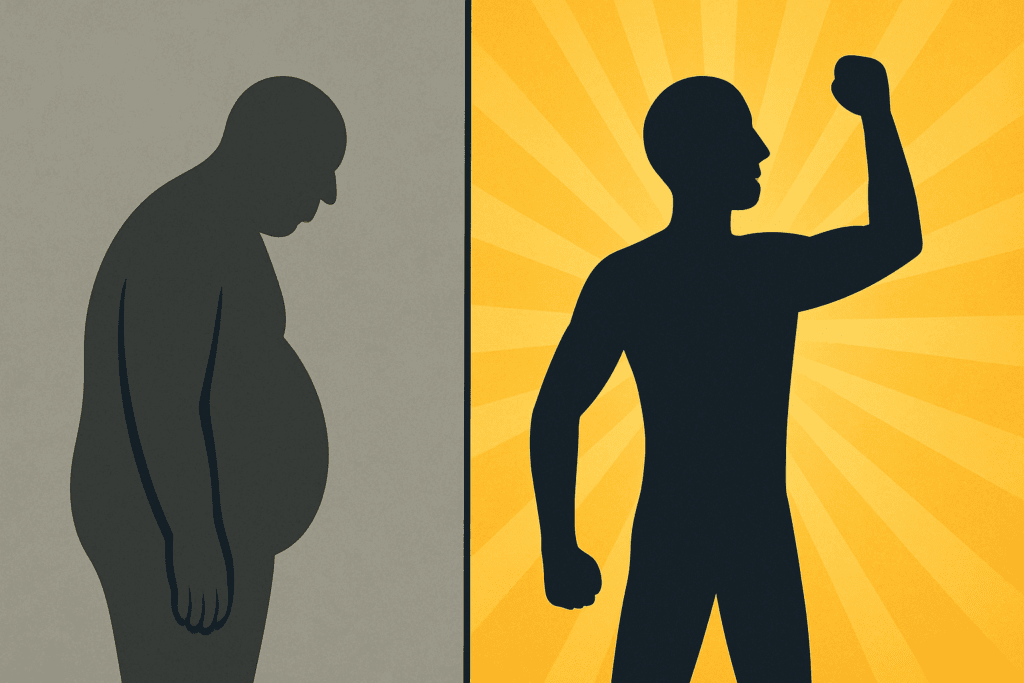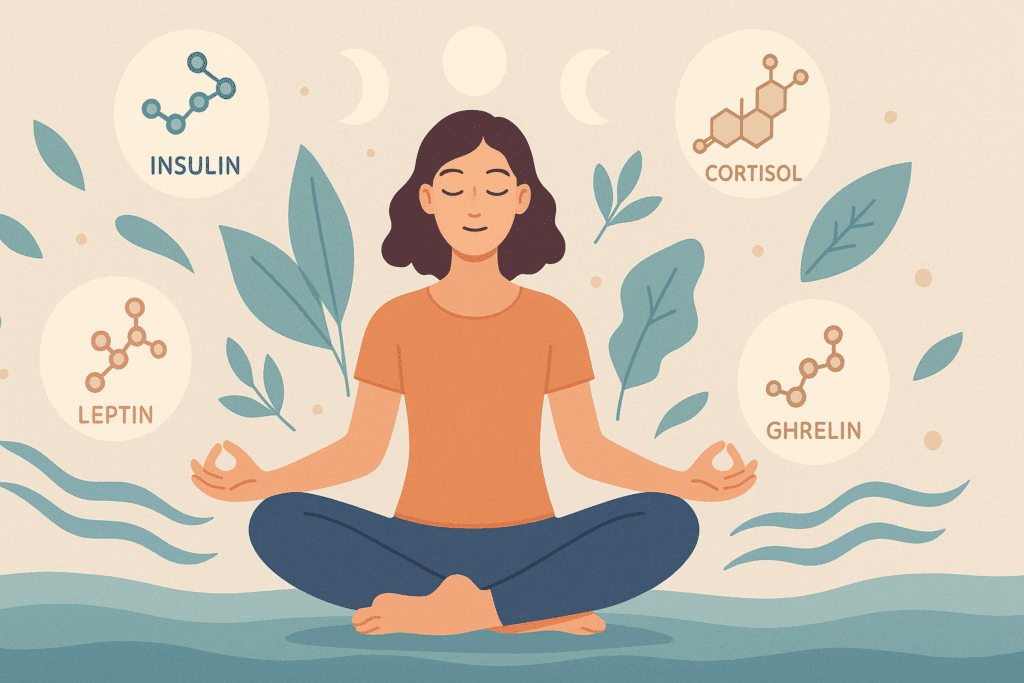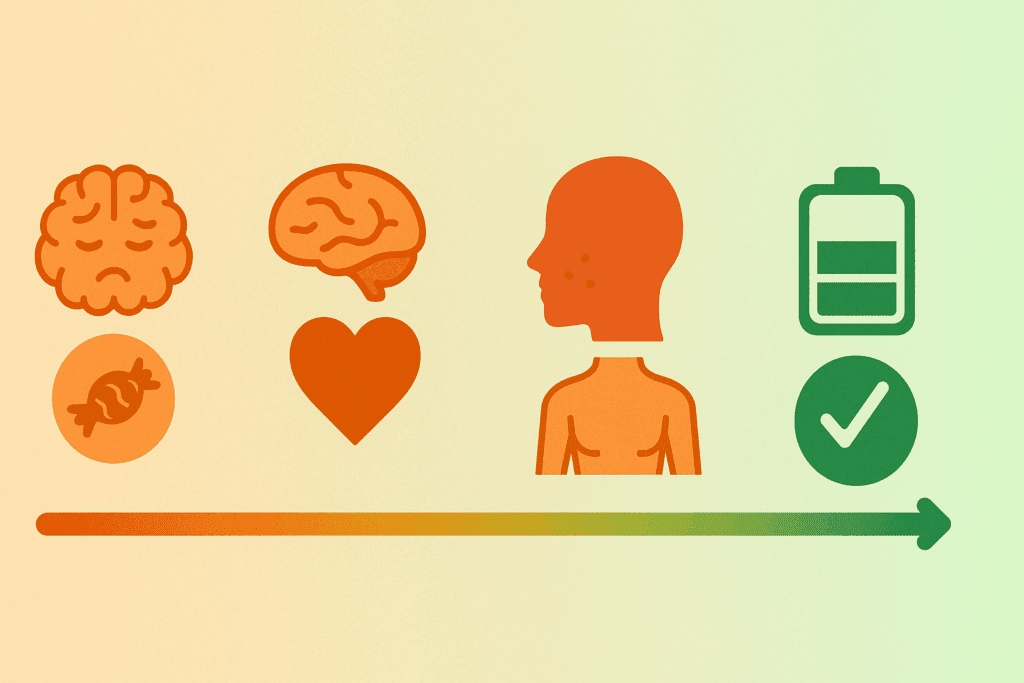Breaking Free from Sugar: Why a 30-Day Challenge Matters More Than You Think
In a world where added sugars sneak into everything from salad dressings to sandwich bread, the question is no longer whether we’re consuming too much—but how we can stop. For many people, the idea of giving up sugar seems nearly impossible. Yet curiosity around what happens when you stop eating sugar for 30 days is growing, fueled by personal success stories, viral challenges, and research highlighting the dangers of excess sugar intake. But beyond the surface buzz, what truly happens to your body, brain, and overall health when you eliminate added sugars for a month?
The process of quitting sugar isn’t just about weight loss or avoiding dessert. It’s a biological transformation—one that affects hormones, mood, energy, metabolism, and even inflammation. Understanding how to quit sugar in a sustainable and healthy way requires more than just willpower; it takes knowledge, strategy, and a realistic view of what the body goes through during this pivotal period. In this article, we’ll explore the science, stages, and benefits of cutting sugar from your diet, providing expert-level insights on the short- and long-term changes that take place in your body. Whether you’re considering a sugar detox, wondering how can I quit eating sugar, or curious about the benefits of cutting out sugar, this deep dive will give you the tools and understanding to move forward with clarity and confidence.
You may also like: Why Am I Craving Sweets All of a Sudden? Expert-Backed Reasons and How to Stop Sugar Cravings Naturally

The First Few Days: Understanding Initial Sugar Withdrawal Symptoms
When you remove added sugars from your diet, your body enters a withdrawal-like state. This may sound dramatic, but it’s grounded in science. Sugar activates the brain’s reward system, triggering the release of dopamine—the same neurotransmitter involved in drug addiction. So, it’s no surprise that the early days of quitting sugar often come with fatigue, headaches, irritability, and intense cravings. These symptoms are not signs of failure or lack of discipline but natural responses to a shift in your brain’s biochemistry.
This withdrawal period typically lasts between three and seven days, depending on your previous sugar intake and individual metabolic differences. During this time, many people report mood swings and low energy levels. Understanding what happens when you stop consuming sugar means being prepared for this temporary discomfort. But the body is adaptive, and with consistency, the intense cravings begin to fade.
It’s important to note that not all sugars are harmful. Naturally occurring sugars in fruits, vegetables, and whole grains come with fiber, antioxidants, and essential nutrients that blunt their impact on blood sugar levels. What we’re talking about here are added sugars—those lurking in sodas, pastries, packaged snacks, and even items marketed as “healthy.” The key is distinguishing between these types and targeting only the harmful ones. Recognizing this distinction is essential when people explore how to quit eating sugar without giving up essential foods that nourish the body.

Metabolic Reset: How Your Body Begins to Change
Around the one-week mark, the benefits of not eating sugar begin to emerge more clearly. The pancreas starts producing insulin more efficiently, blood glucose levels stabilize, and cravings begin to lessen. These changes reduce the risk of insulin resistance—a condition that, when left unchecked, can lead to type 2 diabetes. One of the most significant benefits of quitting sugar is the positive impact on metabolic health.
With blood sugar fluctuations reduced, you may also notice fewer energy crashes and improved concentration. Many people describe feeling “clearer” or more mentally alert. This is not just anecdotal. Glucose spikes and dips caused by excess sugar can lead to brain fog and disrupted focus, especially in people who are sensitive to glycemic swings. When those highs and lows are eliminated, the brain functions more steadily.
From a fat metabolism perspective, what does your body burn after you stopped sugar is also worth examining. Without a constant stream of glucose, the body begins to rely more on fat stores for energy. This shift doesn’t mean entering full ketosis (as in a ketogenic diet), but it does promote better fat oxidation. If you’re also reducing calorie intake or improving diet quality overall, mild weight loss may follow. These shifts show that body change no sugar transformations aren’t just visible on the outside—they begin at the cellular level.

Hormonal Harmony: The Endocrine Effects of Sugar Elimination
One often overlooked consequence of high sugar intake is its disruption of hormonal balance. Excess sugar leads to increased production of insulin and cortisol, two hormones that—when chronically elevated—can contribute to weight gain, fatigue, and difficulty sleeping. Understanding what happens to your body when you stop eating sugar reveals that hormonal stabilization is one of the earliest benefits, even if it’s not outwardly noticeable.
Leptin and ghrelin, the hormones responsible for satiety and hunger, also begin to rebalance. This means fewer instances of “false hunger”—those moments when your brain tells you to eat not because you’re truly hungry but because your blood sugar just crashed. One of the advantages of quitting sugar is regaining the natural rhythm of hunger and fullness, making mindful eating more intuitive.
For women, reducing added sugar can also support more stable menstrual cycles. Research suggests that high sugar intake is linked to increased symptoms of PMS and worsened hormonal acne. Removing sugar may help reduce inflammation and support clearer skin, improved mood, and more predictable hormonal fluctuations. When exploring what happens when you quit sugar, these subtler shifts are as important as the more obvious ones.

The Mental and Emotional Shift: From Cravings to Clarity
Psychologically, sugar can exert powerful control. Many people don’t realize the extent to which their mood is tethered to sugary foods until they stop consuming them. After about two weeks without sugar, emotional dependence often gives way to increased mental clarity and emotional resilience. This is partly due to fewer energy dips but also to the brain’s re-adaptation to stable dopamine levels.
When sugar is removed, dopamine production normalizes, and the brain becomes more sensitive to natural rewards—like exercise, social interaction, or achievements. This can elevate mood and reduce the compulsion to use food as a coping mechanism. Giving up sugar in this context can support better mental health outcomes, particularly for people struggling with emotional eating or low mood.
There’s also a self-reinforcing cycle that begins to build. As you experience improvements in energy, focus, and emotional balance, you’re more likely to stick with the change. The process becomes less about willpower and more about alignment with your body’s new baseline. If you’re asking, can quitting sugar help with mental well-being, the answer is increasingly supported by both research and real-life experience.

Physical Appearance and Inflammation: What Changes You May See in the Mirror
By the third or fourth week of eliminating sugar, many individuals notice tangible changes in their physical appearance. Skin often becomes clearer, puffiness decreases, and chronic bloating improves. This is due in part to the reduction of systemic inflammation, a well-documented response to high sugar intake. Excess sugar can promote the production of advanced glycation end products (AGEs), which accelerate skin aging and reduce elasticity.
The anti-inflammatory effects of quitting sugar before and after can be dramatic for some people. Joint pain, digestive distress, and even minor skin conditions like eczema may show improvement. While not everyone will have the same results, the benefits of no sugar often extend beyond what the scale or mirror can measure. Internally, your liver and gut also benefit from a reduction in the metabolic burden caused by fructose and other sweeteners.
Still, the mirror isn’t the only place where change becomes visible. Some people experience moderate weight loss, especially around the abdomen, when sugar is removed from a previously high-sugar diet. Even if weight doesn’t shift significantly, the reduction in bloating and water retention can make clothing fit better and body confidence improve. These effects often reinforce motivation, helping people stay committed beyond the 30-day mark.
Understanding the Impact of a Single Slip: What Happens If You Break a No Sugar Diet Once
It’s important to acknowledge that perfection isn’t necessary for progress. People often worry what happens if you break a no sugar diet once, fearing that a single dessert will undo weeks of effort. While it’s true that refined sugar can reignite cravings, especially in the early stages of detox, one indulgence doesn’t erase the benefits you’ve gained. The key is how you respond afterward.
A compassionate and informed approach allows for a more sustainable long-term shift. If you return to your no sugar routine with intention, the setback becomes part of the learning process. One of the most empowering aspects of learning how to wean off sugar is realizing that you’re not held hostage by your cravings anymore. You can choose when and how to enjoy something sweet—without falling back into old patterns.
This is particularly important in social settings, holidays, or emotional times when sugar-laden foods are often tied to tradition or comfort. Rather than fostering guilt or shame, understanding what happens when you stop eating sugar—and how resilient your body can be—helps you adopt a mindset that balances health and flexibility.

Sugar Detox Before and After: A Realistic Look at Transformation
The term “detox” is often misused in the wellness space, but a sugar detox—done properly—is a legitimate metabolic reset. It doesn’t involve extreme fasting or expensive cleanses. Rather, it’s a process of allowing your body to return to homeostasis after years of overstimulation from added sugars. The sugar detox before and after experience often includes a clearer complexion, more stable mood, deeper sleep, and better digestion.
Yet, beyond aesthetics and energy, detoxing from sugar can influence deeper systems like cardiovascular health. Lower sugar intake is associated with reduced triglycerides, better HDL cholesterol levels, and lower blood pressure. Over time, these changes can reduce the risk of heart disease, stroke, and fatty liver disease. The benefits of not eating sugar aren’t just immediate—they compound over months and years.
It’s worth noting that detoxing from sugar isn’t about deprivation. Rather, it’s an opportunity to rediscover flavors, nourish your body with whole foods, and build new habits that support longevity. Understanding how to quit sugar in a sustainable way sets the stage for long-term health benefits without the rigidity of fad diets.

Sustaining the Change: How to Quit Sugar and Maintain a Balanced Lifestyle
Successfully eliminating sugar for 30 days is an achievement—but maintaining those changes requires ongoing awareness. The best strategy for how to quit eating sugar long term involves education, preparation, and community support. This means learning to read labels for hidden sugars, finding satisfying alternatives like fresh fruit or date-sweetened snacks, and building meals around whole, nutrient-dense ingredients.
One helpful approach is crowding out sugar rather than focusing solely on restriction. When meals are satisfying, rich in fiber, protein, and healthy fats, cravings diminish naturally. Emotional support also plays a role. Whether through online forums, accountability partners, or healthcare professionals, having encouragement makes it easier to avoid relapse and stay mindful of your progress.
Knowing what happens when you stop eating sugar for 30 days can help you make informed choices moving forward. While not everyone will choose to remain completely sugar-free, many find that the 30-day experiment rewires their preferences, making moderation more achievable. You may find that after the detox, sweet foods taste overwhelmingly strong, and your taste buds begin to appreciate the natural sweetness in fruits, grains, and vegetables.
Frequently Asked Questions: What Really Happens When You Stop Eating Sugar
1. What happens to your gut microbiome when you stop eating sugar for 30 days?
When you stop eating sugar for 30 days, your gut microbiome undergoes notable changes that support better digestion, immunity, and mood regulation. Sugar feeds certain strains of harmful bacteria and yeast—particularly Candida albicans—which can cause bloating, fatigue, and sugar cravings. Cutting out sugar shifts the balance toward beneficial strains like Bifidobacteria and Lactobacilli, which thrive on fiber instead of refined carbohydrates. These positive changes can improve nutrient absorption and reduce inflammation in the gut lining. This is one of the lesser-known benefits of quitting sugar, showing how gut health is a cornerstone of overall wellness after sugar withdrawal.
2. How can quitting sugar impact mental clarity and emotional health?
People often ask, “What happens when you stop eating sugar?” beyond the physical symptoms. One surprising answer is that it can significantly improve cognitive function and emotional regulation. Excess sugar causes blood sugar spikes and crashes that impair concentration, worsen anxiety, and contribute to mood swings. When you quit sugar, your brain stops relying on glucose rollercoasters and begins to function more steadily, often resulting in fewer mental “fog” episodes. Over time, those who have succeeded in giving up sugar report more stable moods, less irritability, and enhanced productivity. It’s a psychological benefit of not eating sugar that’s just as important as the physical changes.
3. What happens when you break your no sugar diet once—does it undo all your progress?
One common concern is what happens if you break a no sugar diet once. The short answer? It depends on your mindset and how you respond. A single indulgence won’t erase the benefits of not eating sugar, but it can reignite cravings due to the dopamine response sugar triggers. The real risk lies in the potential relapse into old patterns. To avoid spiraling, treat it as a learning moment, not a failure. Those wondering how to quit eating sugar sustainably must prepare for slip-ups as part of the process, not the end of it.
4. Can quitting sugar help with hormonal imbalances, especially in women?
Absolutely. Many women report better hormonal balance as one of the benefits of cutting out sugar, particularly those with PCOS, insulin resistance, or estrogen dominance. Sugar disrupts the endocrine system by spiking insulin and cortisol, both of which influence sex hormones like estrogen and progesterone. Over time, when you stop eating sugar, your body recalibrates hormone production, which may reduce PMS symptoms, acne, and irregular cycles. This also contributes to weight regulation and fertility. So if you’ve asked, can quitting sugar help with hormonal issues?—the answer is increasingly supported by emerging clinical research.
5. What does your body burn after you stopped sugar and how does energy production shift?
When you stop eating sugar, your body begins burning fat more efficiently for energy. Without constant glucose intake, insulin levels drop, allowing stored fat to be used as fuel—a state known as “fat adaptation.” This is one of the key benefits of quitting sugar for those aiming to lose weight or enhance metabolic flexibility. Over the course of a sugar detox, your mitochondria (the cell’s energy factories) become more efficient at using fatty acids. So if you’ve ever wondered what your body burns after you stop sugar, the answer is: your own stored energy, in a much more sustainable way.
6. What happens to your sleep patterns when you quit eating sugar?
Many people are surprised to learn that better sleep is one of the benefits of no sugar that emerges within the first week. Sugar, especially at night, disrupts melatonin production and raises cortisol—two hormones essential for restful sleep. Once you begin giving up sugar, your sleep cycles can normalize, leading to deeper, more restorative rest. This change helps regulate appetite the next day and improves mood resilience. If you’ve asked what happens when you quit sugar, improved sleep is a subtle but powerful reward that reinforces the body’s healing.
7. How do social situations affect your commitment to quitting sugar, and how can you manage them?
Navigating social environments is often the hardest part of how to quit sugar successfully. Birthday parties, holidays, and peer pressure can tempt even the most disciplined individuals. Preparing in advance with your own snacks or setting boundaries ahead of time can make a big difference. Understanding what happens when you stop consuming sugar also gives you the confidence to make mindful choices rather than reactive ones. Instead of focusing on restriction, reframe your decision as empowerment—and educate those around you. The advantages of quitting sugar are worth a few awkward moments at dinner.
8. What happens when you quit sugar and experience withdrawal symptoms—how can you manage them effectively?
Sugar withdrawal is real, and knowing what happens when you quit eating sugar prepares you to handle symptoms like headaches, fatigue, or irritability. These are temporary responses as the brain recalibrates from dopamine fluctuations. Drinking plenty of water, increasing fiber, and using cinnamon or chromium-rich foods can ease cravings. For those exploring how to wean off sugar, a gradual reduction (starting with beverages or dessert) may work better than going cold turkey. Think of the sugar detox before and after like climbing a hill—the hardest part is near the beginning, but the view from the top is transformative.
9. What are the long-term benefits of not eating sugar beyond weight loss?
Many people initially explore how to quit sugar for weight loss, but the long-term gains go far beyond the scale. Once you’ve been off sugar for several months, improvements in skin clarity, immune resilience, and cardiovascular health often appear. You may also notice improved focus, lower blood pressure, and fewer chronic inflammation markers. These benefits of quitting sugar are cumulative and often lifelong. So if you’re asking what happens when you stop eating sugar for 30 days, think of it as just the beginning of a much larger health transformation.
10. What are the psychological stages of quitting sugar and how can you stay motivated?
Understanding the psychological arc of how to quit eating sugar is essential for long-term success. Initially, there’s excitement and motivation, followed by cravings, frustration, and occasional doubt. But as you notice the body change no sugar brings—like more stable energy and clearer thinking—you enter a phase of empowerment. Journaling, joining support groups, or tracking a quitting sugar before and after timeline can help maintain motivation. If you’re wondering what happens when you stop eating sugar, remember that your mindset shifts just as much as your metabolism. Long-term success is more about habit transformation than willpower alone.
Conclusion: Why Giving Up Sugar for 30 Days Can Change Your Life—Inside and Out
Reflecting on what happens when you stop eating sugar for 30 days, it’s clear that the transformation is both physical and psychological. From stabilized blood sugar and balanced hormones to clearer skin and improved mood, the benefits of cutting out sugar go far beyond the absence of dessert. This 30-day challenge is not a fad—it’s a scientifically grounded intervention that can catalyze lasting change.
If you’ve been wondering how can I quit eating sugar, the answer lies in preparation, patience, and self-compassion. There will be challenges, but the reward is a renewed sense of vitality and control. Whether you’re driven by curiosity, health concerns, or a desire for more energy, the process of giving up sugar can reveal more about your body’s resilience than you might expect.
Importantly, this journey is not about restriction—it’s about freedom. The freedom to choose foods that nourish you. The freedom to break the cycle of cravings. And the freedom to live with more mental clarity, physical vitality, and emotional balance. The advantages of quitting sugar may begin in 30 days, but their ripple effects can last a lifetime.
Was this article helpful? Don’t let it stop with you. Share it right now with someone who needs to see it—whether it’s a friend, a colleague, or your whole network. And if staying ahead on this topic matters to you, subscribe to this publication for the most up-to-date information. You’ll get the latest insights delivered straight to you—no searching, no missing out.
Further Reading:
What changes when you stop consuming sugar?
What happens if you stop eating sugar for 30 days?
What happens to your brain when you give up sugar
Disclaimer
The information contained in this article is provided for general informational purposes only and is not intended to serve as medical, legal, or professional advice. While NewsHealthWatch strives to present accurate, up-to-date, and reliable content, no warranty or guarantee, expressed or implied, is made regarding the completeness, accuracy, or adequacy of the information provided. Readers are strongly advised to seek the guidance of a qualified healthcare provider or other relevant professionals before acting on any information contained in this article. NewsHealthWatch, its authors, editors, and contributors expressly disclaim any liability for any damages, losses, or consequences arising directly or indirectly from the use, interpretation, or reliance on any information presented herein. The views and opinions expressed in this article are those of the author(s) and do not necessarily reflect the official policies or positions of NewsHealthWatch.

